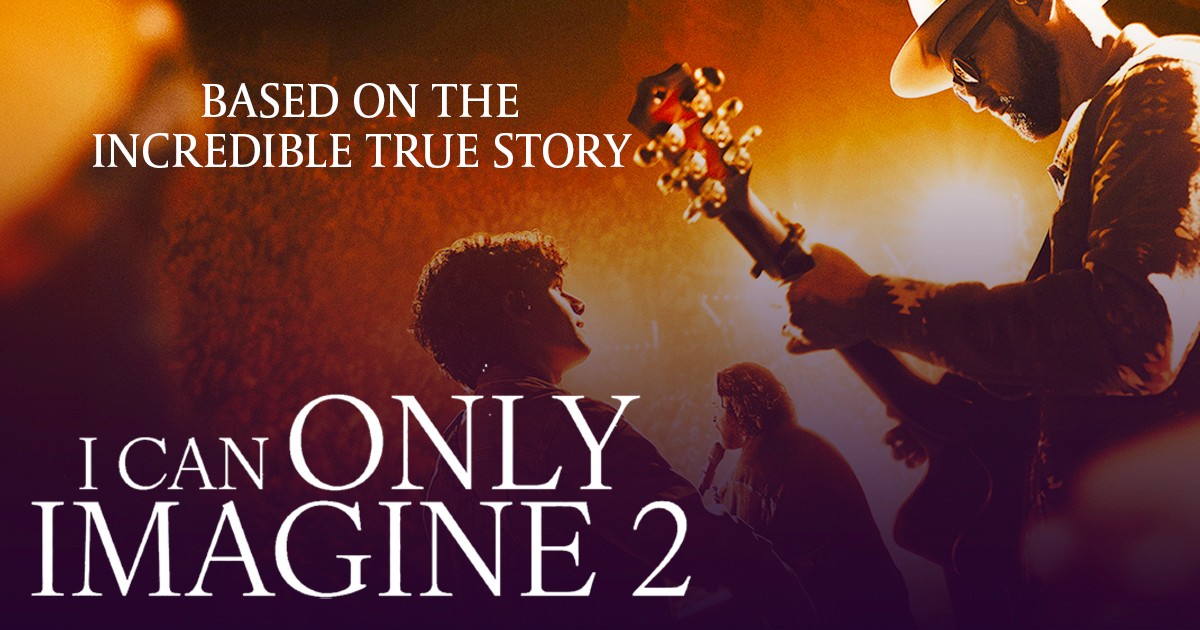A Facebook event made headlines worldwide in September 2019 when 3.5 million people signed up to attend “Storm Area 51, They Can’t Stop All of Us.” In the end, no one actually tried to break into the infamous U.S. Air Force base, which has long been associated with alien activity. But the event’s popularity reflects the enduring appeal of conspiracy theories about UFOs. According to a recent Insights West poll, 53 percent of Canadians somewhat believe or completely believe that aliens exist.
While belief in aliens is relatively harmless, the same poll shows that many Canadians believe conspiracy theories with far more serious consequences. Seventeen percent of those surveyed somewhat believe or completely believe that global warming is a hoax, while one in 10 Canadians believe that COVID-19 vaccines include a chip to track people.
Conspiracy theories often flourish in times of uncertainty, such as the current global pandemic—and Christians are not immune from these beliefs. In fact, in some cases, we may be even more susceptible.
Traditions and Tensions
Belief in conspiracies is not unique to any particular group. It cuts across demographic and political lines, though different groups are more likely to believe different theories. For example, according to the Insights West poll, Conservative voters were most likely to say that COVID-19 was created in a lab and escaped by mistake (44 percent) and people aged 35-54 were most likely to say Bigfoot exists (25 percent). Men were more likely than women to believe in conspiracy theories generally, but a higher percentage of women said the car crash that killed Diana, the Princess of Wales, was an assassination, not an accident.
So what do all conspiracy theorists have in common?
“Both currently and historically, a common denominator for people buying into conspiracy theories is not trusting experts,” says Daniel Silliman, news editor at Christianity Today and author of Reading Evangelicals: How Christian Fiction Shaped a Culture and a Faith.
In his experience, that distrust is often found among the least educated and the most educated. “People who don’t have a lot of education may be suspicious of experts, and people who are highly educated may think they know more than the experts,” he says.
 There’s no single reason why Christians, in particular, may be drawn to conspiracy theories. But Dr. Michael Boyce, vice-president academic and dean at Booth University College, sees a number of factors.
There’s no single reason why Christians, in particular, may be drawn to conspiracy theories. But Dr. Michael Boyce, vice-president academic and dean at Booth University College, sees a number of factors.
One is a distortion of the idea that Christians should be “in the world, but not of it” (see John 17:14-16). “Some groups of Christians have so strongly emphasized the evilness of the world that it’s turned into an us-versus-them situation,” Boyce says. “Anything, anyone that’s of the world, including the government, can’t be trusted. And when a conspiracy comes along that re-enforces that understanding of the wickedness of the world, it reaffirms that belief.”
Conspiracy theories can also take hold in churches where blind faith is celebrated and romanticized, while critical thinking is under-emphasized. Boyce notes that anti-intellectualism often thrives in churches that “overvalue belief and faith, and undervalue reason and research.”
In evangelical Christianity, views around science are complicated by the movement’s inherent populism, as demonstrated in beliefs about access to the Bible.
“There are many traditions that say you need to trust experts to interpret the Bible, while a key piece of the evangelical movement was the idea that experts can inform you, but you should read the Bible for yourself,” explains Silliman. “You should have your own relationship with Jesus, your own investigation of Scripture.
“So to build that deep into the culture and then say, but over here, you should trust experts and not come to your own opinion—that it’s actually dangerous to ask normal people to come to their own opinion—I think that’s hard,” he continues. “There are some real tensions in how we view the world as evangelicals who also trust science.”
Signs of the (End) Times
Thanks to social media, and the internet in general, conspiracy theories can spread faster and further than ever before. But they are nothing new. Conspiracy theories about Jewish people have been circulating for hundreds of years, while 19th- and 20th-century examples include anti-Mason, anti-Catholic and anti-communist conspiracies.
As Silliman notes, Christians have often been involved in these movements. For example, the John Birch Society, which came to prominence in America during the Cold War while promoting an array of communist conspiracy theories, claimed many evangelicals as members.
Among them was Tim LaHaye, coauthor of the widely popular Left Behind series. The books are based on an interpretation of the Book of Revelation that predicts a rapture of believers and the coming of an Antichrist who will rule the world during a time of tribulation.
Silliman is not surprised to see the overlap between this interpretation of Scripture and a belief in conspiracy theories, as with LaHaye.
“This view of the End Times—that there’s a meaning to events that’s hidden from most people that we can see because of our revelation and our heightened awareness—is itself a conspiracy theory,” he says. “And if you can believe in this conspiracy theory, then you can believe in another one. It creates an acceptable mode of thinking.”
As a fictional series, Left Behind doesn’t need to claim to be true. “It’s setting itself up as, this could be true,” Silliman says.
He sees a similar pattern with conspiracy thinking. “We talk about people believing conspiracy theories, and I wonder if we should talk more about people entertaining them,” he says. When challenged, a person who’s entertaining conspiracy theories can “retreat to a position of, well, it could be true. I don’t know for sure. I’m investigating, I’m weighing all the facts.”
For conspiracy theorists—whether one fully believes or is entertaining possibilities—one thing is sorely lacking: critical feedback mechanisms.
Bringing those mechanisms back into mainstream Christian discourse is a passion for Dr. Dru Johnson, associate professor of biblical and theological studies, and director, Center for Hebraic Thought, at The King’s College in New York City.
“What I’ve tried to do in my academic work is to show Christians, through their own Scripture, that that’s an unacceptable way to look at life,” he says. “From the Old Testament to the New, God demands critical feedback loops that can interrupt your thinking.
“As soon as you find yourself in a position where nothing can change your mind on an issue, including your relationship with Jesus, then you have stepped outside of the biblical view of what it means to know something.”
In God We Trust?
As a biblical scholar, Johnson sees the current of conspiracy theories running through the whole of Scripture. It begins in the Garden of Eden with the serpent, who sets himself up as an “authoritative knower” with an alternative view of the world, undermining what God has said to Adam and Eve.
“Scripture starts with a story about a guy who’s spinning conspiracies,” says Johnson. “It couldn’t be more blaring in our faces—we should be really careful about who we listen to.”
Johnson points out that what the serpent says is not untrue, exactly—Adam and Eve do not die on the day they eat the fruit, and their eyes are opened to the knowledge of good and evil, just as the serpent said. So why should they have listened to God and not the serpent? It comes down to trust.
“God has earned the right to be trusted, to demand the trust of the couple, and they violate that. And then that becomes the story of Israel and the story of us,” Johnson says.
Trust in God, he notes, is not blind but is built on evidence.
“If you go through the Torah and the Gospels, you see the egregious amount of time that God spends building trust with his people,” Johnson says. “He never comes to them saying, ‘I’m saying this, so you better do it.’ There’s no, God says ‘jump’ and we say ‘how high.’ It’s spending years with people, building trust, giving them real reasons to trust him, and then leading them into areas where they’re going to need to trust him.”
The heroes of our faith, including Abraham and Moses, understood that even God’s claims needed to be backed up by real evidence (see Genesis 15, Exodus 4). Blind faith is just that—blind.
We need to learn how to see.
For Johnson, the way forward can be found in Luke 24, which quotes the story of the Fall in Genesis 3. “This time, it’s Jesus taking the bread, giving it to his disciples, and their eyes are opened,” he says. “You do need to see the world differently than you see it right now. But it can only be under the guidance of God, the Holy Spirit and the New Testament, specifically.”
Learning to see and listen to the right voices requires humility. “According to Scripture, we are getting it wrong, we are listening to the wrong voices because of the nature of the Fall,” Johnson says. “And because we’re human, we can only see so much of it. As westerners, we think we can all understand everything alone, which is a farce.”
Instead, Johnson says, we should “look for authoritative and authenticated voices who can guide us to see the world more truly. Seek those people fervently, seek to be corrected fervently; submit your ideas and see how reality corrects you.”
Rebuilding
As with the church today, Jesus himself faced conspiracy theories. But when his disciples asked him, “What will be the sign of your coming and of the end of the age?” his response was simple: “Watch out that no one deceives you” (see Matthew 23:3-6).
Conspiracy theories pose a challenge for The Salvation Army and the church at large. As the Insights West poll shows, a sizable minority of Canadians believe in these theories. Major Corey Vincent sees billboards promoting COVID-related conspiracies while driving around town in Fort McMurray, Alta., where he is corps officer.
“Taken at face value, I think conspiracies are a form of gossip, of foolish talk,” he says, pointing to 2 Timothy 2:16, where the Apostle Paul writes: “Do not listen to foolish talk about things that mean nothing. It only leads people farther away from God” (NLV).
“We have to set a holy example, to be like Christ,” Major Vincent says.
In this time of uncertainty—when many are suffering due to job loss, sickness and other challenges—Major Vincent sees an opportunity for the Army to be light in the darkness. He’s inspired by the prophet Nehemiah, who worked to restore the city of Jerusalem, which was destroyed while the people of Israel were in exile (see Nehemiah 2).
To rebuild, we must reject hatred and polarization. “We’re called to love one another, despite our differences,” he says. “Conspiracy theories are a distraction from the mission that God has given us to build the kingdom. I believe that the enemy is using them, but there’s only division if we allow it to be.
“Let’s not be distracted,” Major Vincent reiterates. “There’s work to do. Let’s look at this time as an opportunity for the church to prosper and for the mission to go forward."
This story is from:










Well done for a great article. I think you are right as more Christians start saying things that are not true or distort the truth. Others who are not saved are spreading Satan's propaganda and believe it with out listening if it is true or not. We meed to shine in the dark before it's too late and share our faith with those who don't know Jesus so they can be saved. I also believe Satan is behind this growth of non trust in anything that is official. I knew a friend who was not saved. He started to believe on conspiracy and it started to spiral as he stopped watching normal news or reading ordinary papers. His life was cut short but I did my best to help him realise this was all a deception. Well done for a great article.